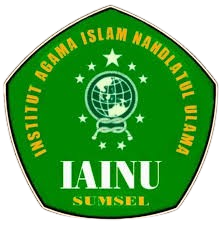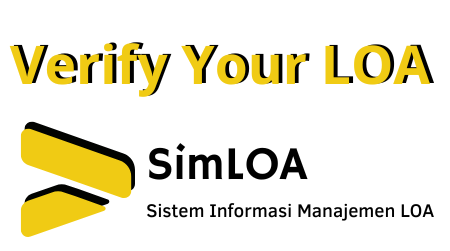LEGAL VALUES AND MORALS IN ECOLOGICAL PRACTICES OF SANTUBONG COMMUNITY
DOI:
https://doi.org/10.70656/jolasos.v2i1.242Keywords:
Legal Values, Moralty, Ecological Practices, Santubong Communty, Serawak MalaysiaAbstract
This study explores the integration of legal values and morality in the ecological practices of the Santubong community, Sarawak, Malaysia. The Santubong community, comprising diverse ethnic groups such as Malay, Iban, Bidayuh, and Chinese, demonstrates a high level of ecological awareness through the integration of traditional wisdom, legal frameworks, and moral principles. This research employs a qualitative approach with a case study method, using Focus Group Discussions (FGD), participant observation, and document analysis to collect data. The findings reveal that the Santubong community applies ecological justice, sustainability, responsibility, and respect for nature through customary laws and everyday practices. Their legal values are reflected in sustainable forest management, water conservation, waste management, and biodiversity protection. Meanwhile, moral principles such as respect for nature, collective responsibility, and ethical behavior drive community participation in environmental conservation. The synergy between legal and moral frameworks contributes to effective ecological governance, ensuring that conservation efforts are not only legally compliant but also socially accepted and morally guided. This study concludes that the Santubong community offers a valuable model of ecological governance, demonstrating that the integration of law and morality can support sustainable environmental management and provide insights for broader ecological policies.
Downloads
References
Anwar, M. (2022). Green Economy Sebagai Strategi Dalam Menangani Masalah Ekonomi Dan Multilateral. Jurnal Pajak Dan Keuangan Negara (PKN), 4(1S), 343–356. https://doi.org/10.31092/jpkn.v4i1s.1905.Bulbeck, D., Reid, A., Tan, L. C., & Wu, Y. (2023). Southeast Asian Exports Since the 14th Century. BRILL.Daud, M. Z., & Subet, M. F. (2021). Naratif Puteri Santubong Dan Puteri Sejinjang Mempertalikan Politik Tempatan: Analisis Pragmatik. Issues in Language Studies, 10(1), 110–130. https://doi.org/10.33736/ils.2552.2021.Departemen Kehutanan Serawak. (2025). Taman Nasional Santubong. https://www.mybis.gov.my/one/activities/index.php.FGD. (2024). Sharing Session with the Villagers of Kampung Santubong. Institut Agama Islam Negeri Ambon. 28 AgustFirdaus, S. (2022). AL-QUR’AN DAN PEMBANGUNAN LINGKUNGAN BERKELANJUTAN DI INDONESIA: ANALISIS MAQASHID SYARIAH UNTUK PENCAPAIAN SDGs. Al-Mustashfa Jurnal Penelitian Hukum Ekonomi Syariah, 7(2), 120. https://doi.org/10.24235/jm.v7i2.11594.Heryanti, H. (2019). Pengakuan Eksistensi Hak Ulayat Laut Masyarakat Hukum Adat Berdasar Nilai-Nilai Kearifan Lokal. Halu Oleo Law Review, 3(2), 196. https://doi.org/10.33561/holrev.v3i2.8650.Hidayati, D. (2017). MEMUDARNYA NILAI KEARIFAN LOKAL MASYARAKAT DALAM PENGELOLAAN SUMBER DAYA AIR. Jurnal Kependudukan Indonesia, 11(1), 39. https://doi.org/10.14203/jki.v11i1.36.Humaida, N., Sa’adah, M. A., Huriyah, H., & Nida, N. H. (2020). PEMBANGUNAN BERKELANJUTAN BERWAWASAN LINGKUNGAN (SUSTAINABLE DEVELOPMENT GOALS) DALAM PERSPEKTIF ISLAM. Khazanah Jurnal Studi Islam Dan Humaniora, 18(1), 131. https://doi.org/10.18592/khazanah.v18i1.3483.
Jolasos : Journal Of Law And Social SocietySyah Awaluddin, Mohamad Fairuz Bin Ali10Keai, G. K., & Tugang, N. (2023). Artifak Sakral Dalam Budaya Iban Di Sarawak. Kajian Malaysia, 41(1), 311–335. https://doi.org/10.21315/km2023.41.1.15.Kementerian Pelancongan, Seni, dan Budaya Malaysia. (2024). Warisan Budaya Masyarakat Santubong. https://www.motac.gov.my.Kopnina, H., & Shoreman-Ouimet, E. (2016). Routledge Handbook of Environmental Anthropology. Taylor & Francis.Liman, Y. (2017). ASTRA, on Becoming Pride of Nation. Gramedia Pustaka Utama.Mappasiara. (2017). FILSAFAT PENDIDIKAN ISLAM. Inspiratif Pendidikan, 6(2), 269. https://doi.org/10.24252/ip.v6i2.5231.Mansor, S., & Pawi, A. A. (2019). Peradaban Melayu Sarawak Dalam Konteks Nusantara. JMS, 2(1), 278–305.Morrison, A. (2018). Fair Land Sarawak: Some Recollections of an Expatriate Officer. Cornell University Press.Nisak, N. M., & Asmanto, E. (2023). Buku Ajar FIQIH Madrasah Ibtidaiyah. Umsida Press eBooks. https://doi.org/10.21070/2023/978-623-464-082-3.Nuansa Bayu Segara. (2015). EDUCATION for SUSTAINABLE DEVELOPMENT (ESD) SEBUAH UPAYA MEWUJUDKAN KELESTARIAN LINGKUNGAN. SOSIO DIDAKTIKA Social Science Education Journal, 2(1). https://doi.org/10.15408/sd.v2i1.1349.Nugraha, N. A. A., Handayani, I. G. A. K. R., & Najicha, F. U. (2021). PERAN HUKUM LINGKUNGAN DALAM MENCEGAH KERUSAKAN DAN PENCEMARAN LINGKUNGAN HIDUP. Jurnal Hukum To-Ra Hukum Untuk Mengatur Dan Melindungi Masyarakat, 7(2), 283–298. https://doi.org/10.55809/tora.v7i2.8.O’Donnell, G., Cullell, J. V., & Iazzetta, O. M. (2016). The Quality of Democracy: Theory and Applications. University of Notre Dame Press.Quddus, A. (2016). Ecotheology Islam: Teologi Konstruktif Atasi Krisis Lingkungan. ULUMUNA, 16(2), 311–346. https://doi.org/10.20414/ujis.v16i2.181.Ridwan, B. (2013). Kesadaran Dan Tanggungjawab Pelestarian Lingkungan Masyarakat Muslim Rawa Pening Kabupaten Semarang. INFERENSI Jurnal Penelitian Sosial Keagamaan, 7(2), 321. https://doi.org/10.18326/infsl3.v7i2.321-342.Risdiarto, D. (2017). Kebijakan Dan Strategi Pembangunan Hukum Dalam Memperkuat Ketahanan Nasional. Jurnal Penelitian Hukum De Jure, 17(2), 177. https://doi.org/10.30641/dejure.2017.v17.177-193.Sarawak Forestry. (2024). Taman Nasional Santubong. https://sarawakforestry.com/parks-and-reserves/santubong-national-park/.
Jolasos : Journal Of Law And Social SocietySyah Awaluddin, Mohamad Fairuz Bin Ali11Sutlive, V., & Sutlive, J. (2001). Encyclopaedia of Iban Studies. The Tun Jugah Foundation.SyahirulAlam, N. M. D. (2021). PEMBANGUNAN SOSIAL-POLITIK INDONESIA: MENILIK MASALAH KLASIK DI KALIMANTAN TENGAH. Journal Ilmu Sosial Politik Dan Pemerintahan, 2(1), 1–83. https://doi.org/10.37304/jispar.v2i1.352.Vansina, J. (1985). Oral Tradition as History. James Currey Publishers.Yuono, Y. R. (2019). ETIKA LINGKUNGAN: MELAWAN ETIKA LINGKUNGAN ANTROPOSENTRIS MELALUI INTERPRETASI TEOLOGI PENCIPTAAN. Fidei Jurnal Teologi Sistematika Dan Praktika, 2(1), 183–203. https://doi.org/10.34081/fidei.v2i1.40.
Downloads
Published
How to Cite
Issue
Section
License
Copyright (c) 2025 Journal Of Law And Social Society

This work is licensed under a Creative Commons Attribution-ShareAlike 4.0 International License.
This work is licensed under a Attribution-ShareAlike 4.0 International.
Jolasos content is licensed under a Attribution-ShareAlike 4.0 International. (CC BY SA 4.0). Authors retain unrestricted copyright and publishing rights of their articles. Authors also grant any third party the right to use or reuse the article freely if its original authors and citation details are identified.






.png)
.png)




